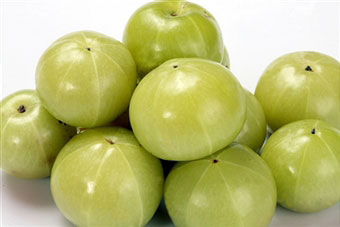Not many people who grow marigold in their garden know of its medicinal values. The herb, also known a calendula officinalis, belongs to the family of Asteraceae of daisy family. Since ancient times, the herb has been extensively used for culinary and medicinal purposes, apart from being planted in gardens for its aesthetic value in beautifying landscapes. It is also used as color enhancer for cheese and replacement of saffron in dressing salads and decorating various dishes.
One of the amazing properties of this beautiful flower is that it does not open up when it is about to rain, acquiring it the name of ‘Rain Doctor’.
Care has to be taken to differentiate the calendula officinalis with other species of marigold flower, which can only serve as ornamental plants, because the consumption of that herb can be unhealthy.
Health Benefits of Marigold
 The bright yellow or orange color of the petals of marigold is due to the presence of antioxidant carotenoids – lutein, zeaxanthin, and lycopene that can prevent damage from free radicals. The antiseptic, anti-inflammatory and anti-bacterial properties of marigold helps in healing skin ailments such as acne, athlete’s foot, Candida, burns, rashes, calluses, corns, eczema and many more. The skin healing property of marigold has seen its extensive use in cosmetic products.
The bright yellow or orange color of the petals of marigold is due to the presence of antioxidant carotenoids – lutein, zeaxanthin, and lycopene that can prevent damage from free radicals. The antiseptic, anti-inflammatory and anti-bacterial properties of marigold helps in healing skin ailments such as acne, athlete’s foot, Candida, burns, rashes, calluses, corns, eczema and many more. The skin healing property of marigold has seen its extensive use in cosmetic products.
The herb also possesses detoxifying, astringent, diuretic, and estrogenic properties which contributes to general well being of the person who consumes it regularly.
Marigold provides quick relief from the redness and swelling accompanying conjunctivitis. The compressed petals of the flowers are known to heal hemorrhoids and ulcers of varicose veins quickly. The antispasmodic property of the herb lessens spasms and cramps, providing quick relief.
Marigold has been used as a medicinal herb in treatment of conditions like:
- Sore throat
- Skin diseases
- Cancer
- Hemorrhoids
- Hemorrhage
- Conjunctivitis
- Menstrual cramps
- Sprains
- Gastritis
- Warts
- Snake bites
- Radiation dermatitis
- Constipation
- Tuberculosis
Though marigold has many health benefits it is recommended not to be used during pregnancy and nursing baby. Since it is also known to cause allergy in some people, it is wise to get tested before starting regular use.
Marigold Tea
Bring water to boil and then add I tablespoon of marigold flowers to it. Steep it for few minutes. Strain and drink the tea for purifying blood, easing inflamed intestines, hepatitis and for general improvement of health. Different herbs can be added to the tea to increase its health benefits.
A cotton pad dipped in cold tea and placed on eyes is known to heal and soothe it.
Marigold Juice
The stem and flowers of the herb can be used to prepare fresh juice, which can heal warts, scabies and other skin ailments. Calendula has very strong taste; therefore it should be mixed with other fruit juices before consumption.
Calendula Infusion Oil
Calendula infusion oil is used in treatment of wounds, bedsores, ulcers, rashes and other skin irritations. The oil is excellent soothing agent for skin which is cracked or itchy. The antibacterial and anti-inflammatory property of the oil heals conditions like hemorrhoids, sores, ruptures and many other similar conditions effectively.
Marigold Tincture
Immerse marigold flowers in either apple vinegar or alcohol and allow it to sit in sun for 20 days. Strain the mixture and store the tincture in air tight bottles for treating menstrual cramps, irregular periods, and anemia.



